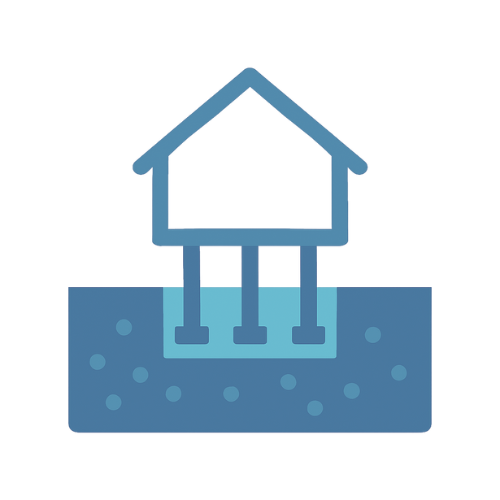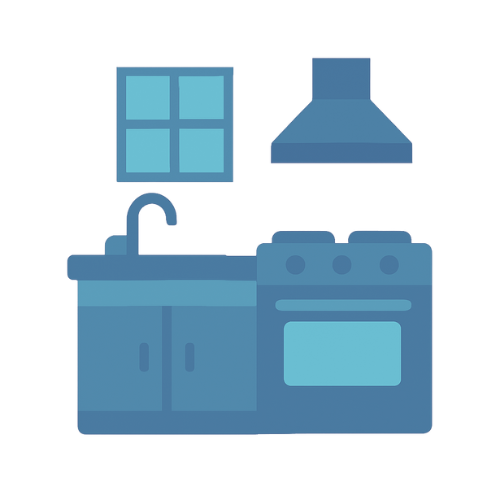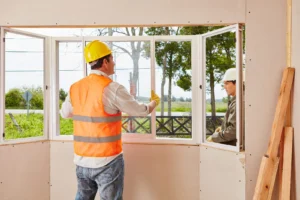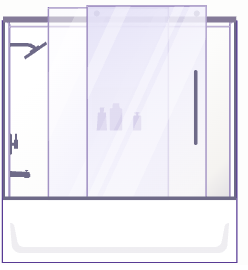What Does a Bathroom Remodel Involve?
Remodeling a bathroom is one of the most common—and worthwhile—home upgrades. It can boost your home’s value, enhance how the space functions, and turn your bathroom into a peaceful place to start and end your day. But when people talk about a "bathroom remodel," they could mean anything from a simple refresh to a complete renovation. It’s also one of the costlier improvements you can make. In this guide, we’ll explore the different types of bathroom remodels, how to pick upgrades that fit your needs, what you can expect to spend, and tips for choosing the right contractor.
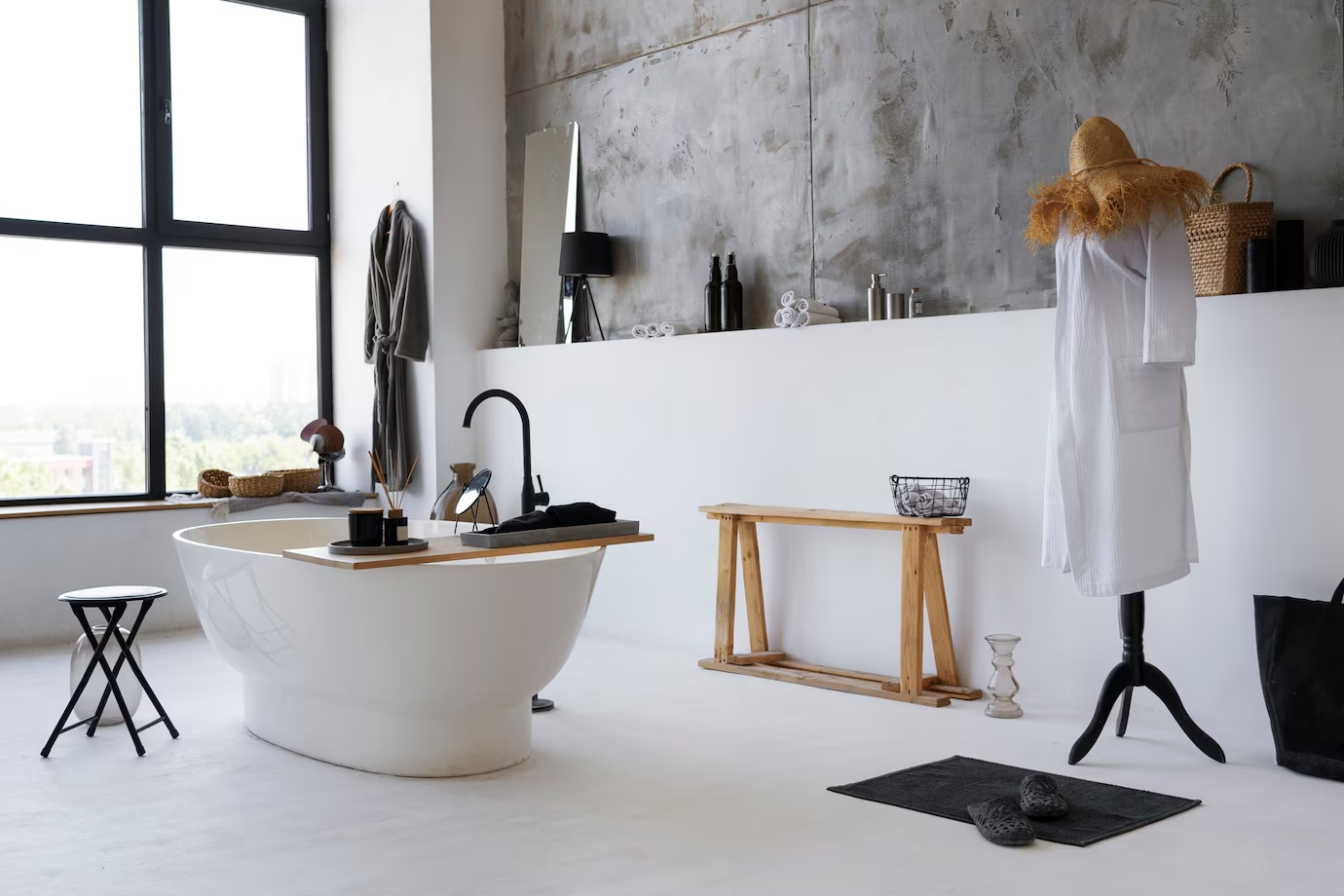
Understanding Bathroom Remodels
While the terms remodel and renovation are often used as if they mean the same thing, there’s actually a subtle difference between the two.
A bathroom renovation usually refers to smaller updates that freshen up the look of the space—like adding a new coat of paint, upgrading light fixtures, replacing tile, or other surface-level improvements.
A bathroom remodel, on the other hand, involves more significant changes to the layout or function of the room. If you're relocating the shower, removing the bathtub, or knocking down walls, you're stepping into remodel territory.
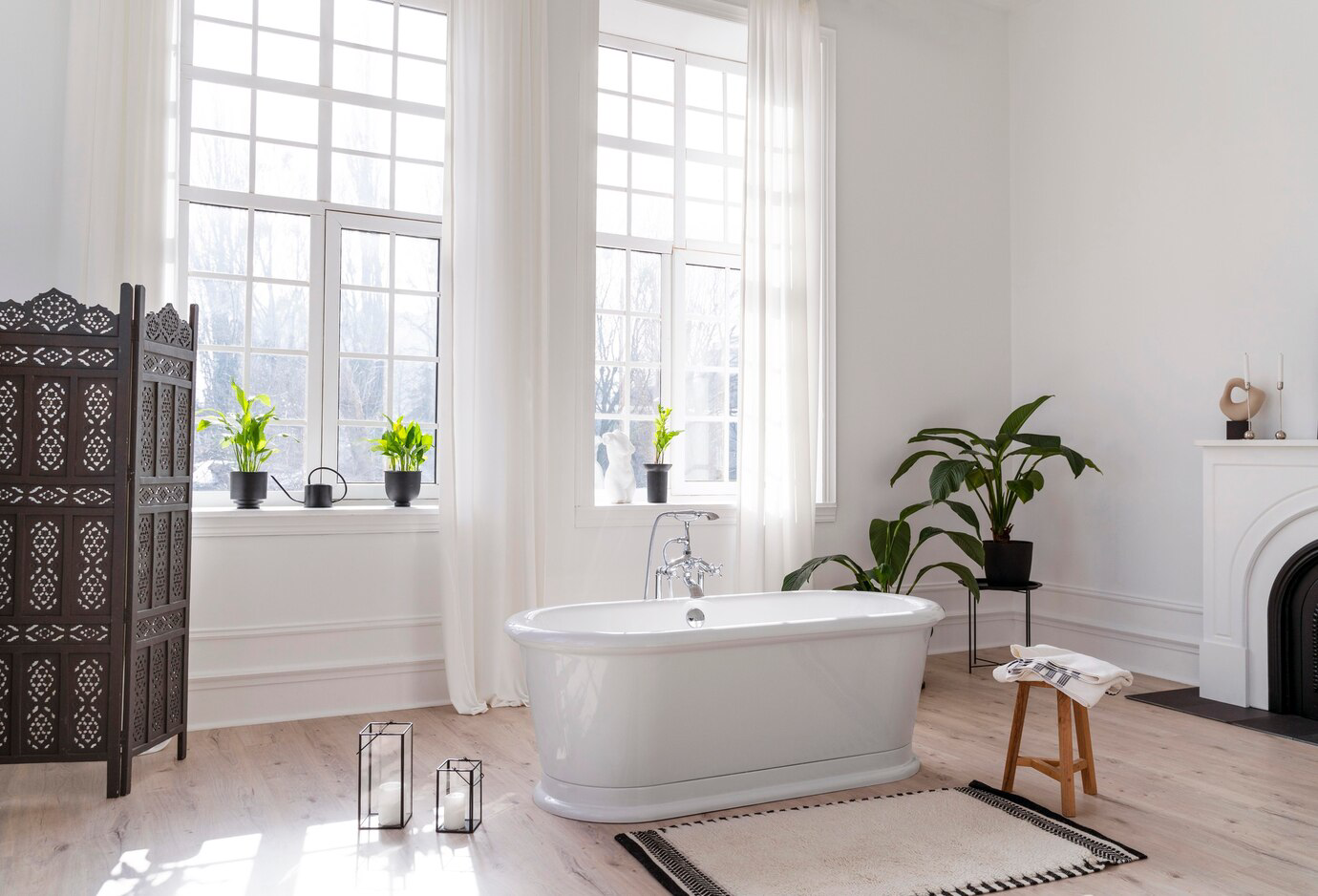
Frequently Asked Questions
Is Remodeling a Bathroom More Expensive Than Renovating One? +
Types of Bathroom Remodels
Bathroom remodels generally fall into two categories: partial and full. A partial remodel usually involves surface-level updates—like new paint, tile, or fixtures—and is often considered more of a renovation. A full remodel, on the other hand, typically means stripping the space down to the studs and completely rebuilding it with all-new features.
It also helps to consider the type of bathroom you're working on. A small guest bath, a half-bath, and a spacious master bathroom each come with their own design needs and priorities.
Some people use the term “partial remodel” to describe specific updates, like redoing just the shower or replacing a bathtub. If that’s your focus, searching by the exact fixture or feature you’re updating can help you find the most relevant guidance.
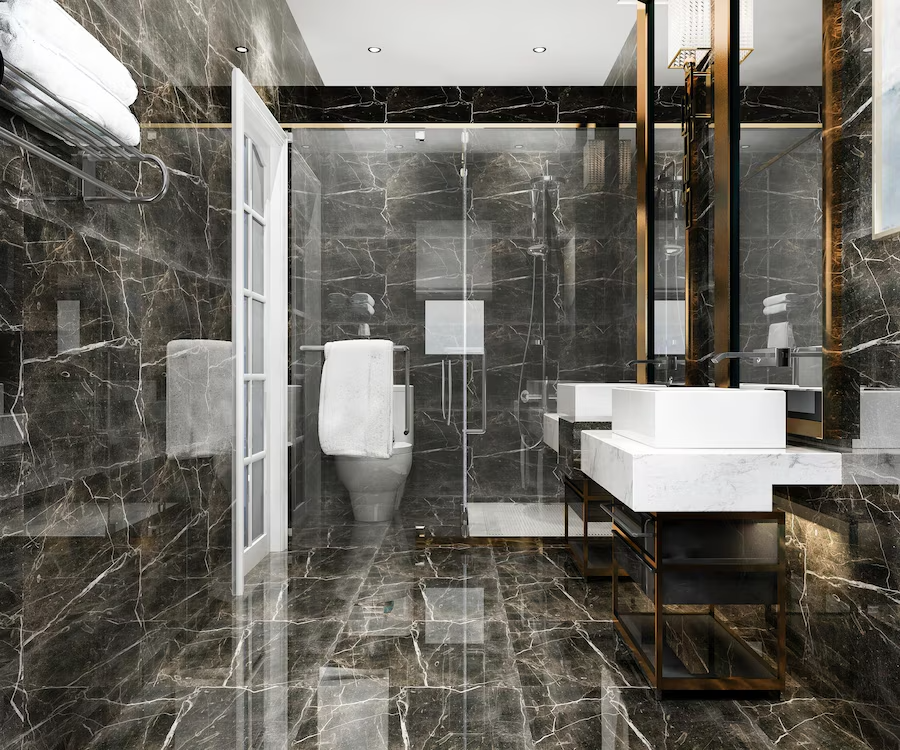
Frequently Asked Questions
What Counts as a Small Bathroom? +
How to Choose the Right Bathroom Renovation for Your Home
When deciding what kind of bathroom updates to make, your budget will be the biggest guiding factor. As you figure out how much you're willing to invest, think about which parts of your bathroom bother you most, what changes would make the space more enjoyable, and whether you’re thinking about selling your home in the near future.
If a move is on the horizon—say, within the next five years—it’s a good idea to talk to a local real estate agent. They can help you understand which bathroom upgrades are most appealing to buyers in your area and what kind of return on investment you can realistically expect.
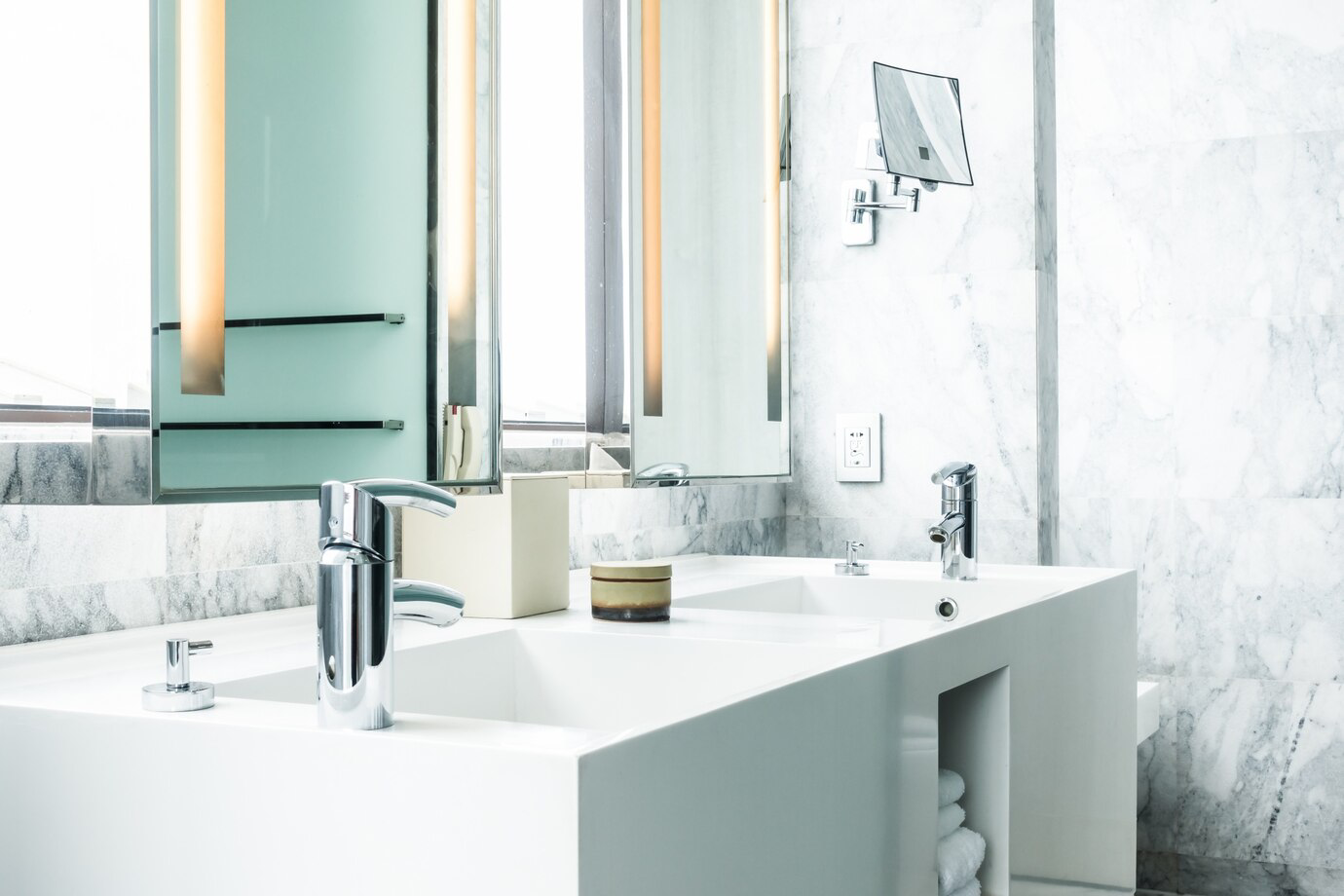
Frequently Asked Questions
How Do I Decide Which Parts of My Bathroom to Renovate? +
What Should I Think About Before Remodeling My Bathroom? +
Key Elements You Can Update in a Bathroom Remodel
A bathroom remodel can include a variety of updates, big and small. Below is a quick overview of the most common components you might choose to renovate. At the end of this section, you’ll find links to detailed pages that dive deeper into each one.
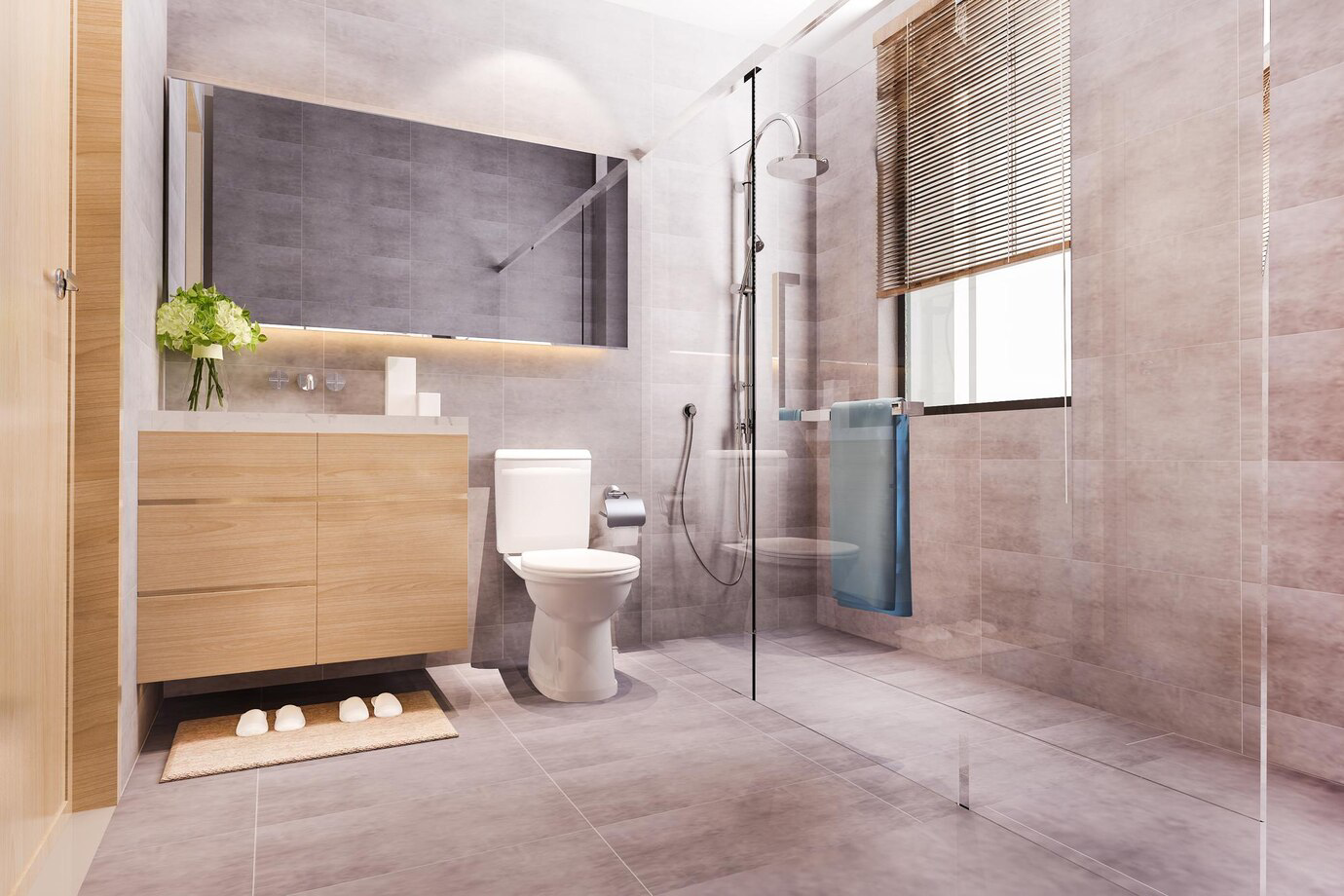
Shower
The shower is a key element in your bathroom. It can feature a walk-in design, with or without doors or curtains, and can include custom touches like rainfall showerheads, built-in shelves, or tiled walls.
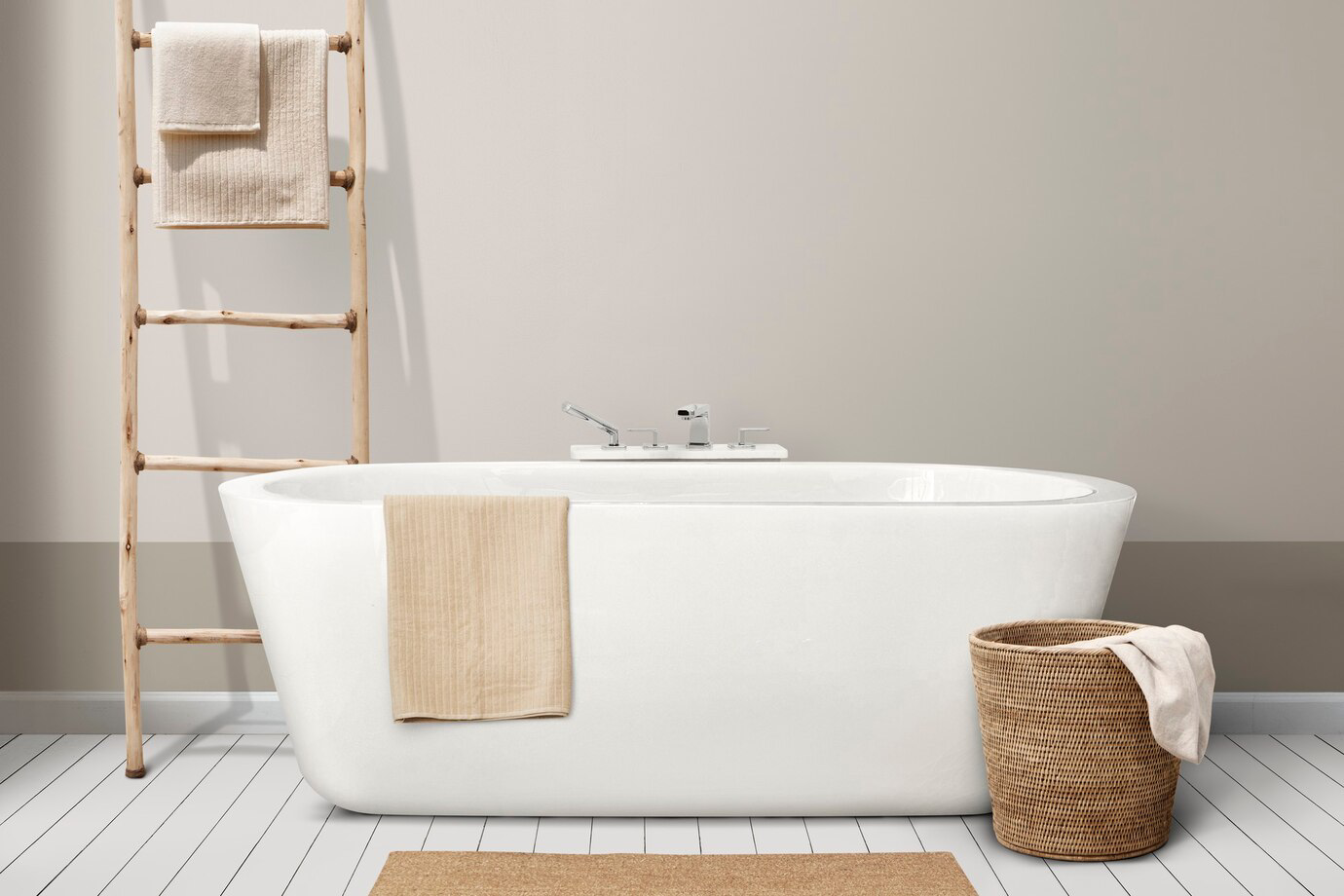
Bathtub
A bathtub offers a tranquil spot for soaking and bathing. It can be freestanding, built-in, or part of a tub-shower combo. Choices vary from basic alcove tubs to more luxurious options like whirlpool or clawfoot designs.
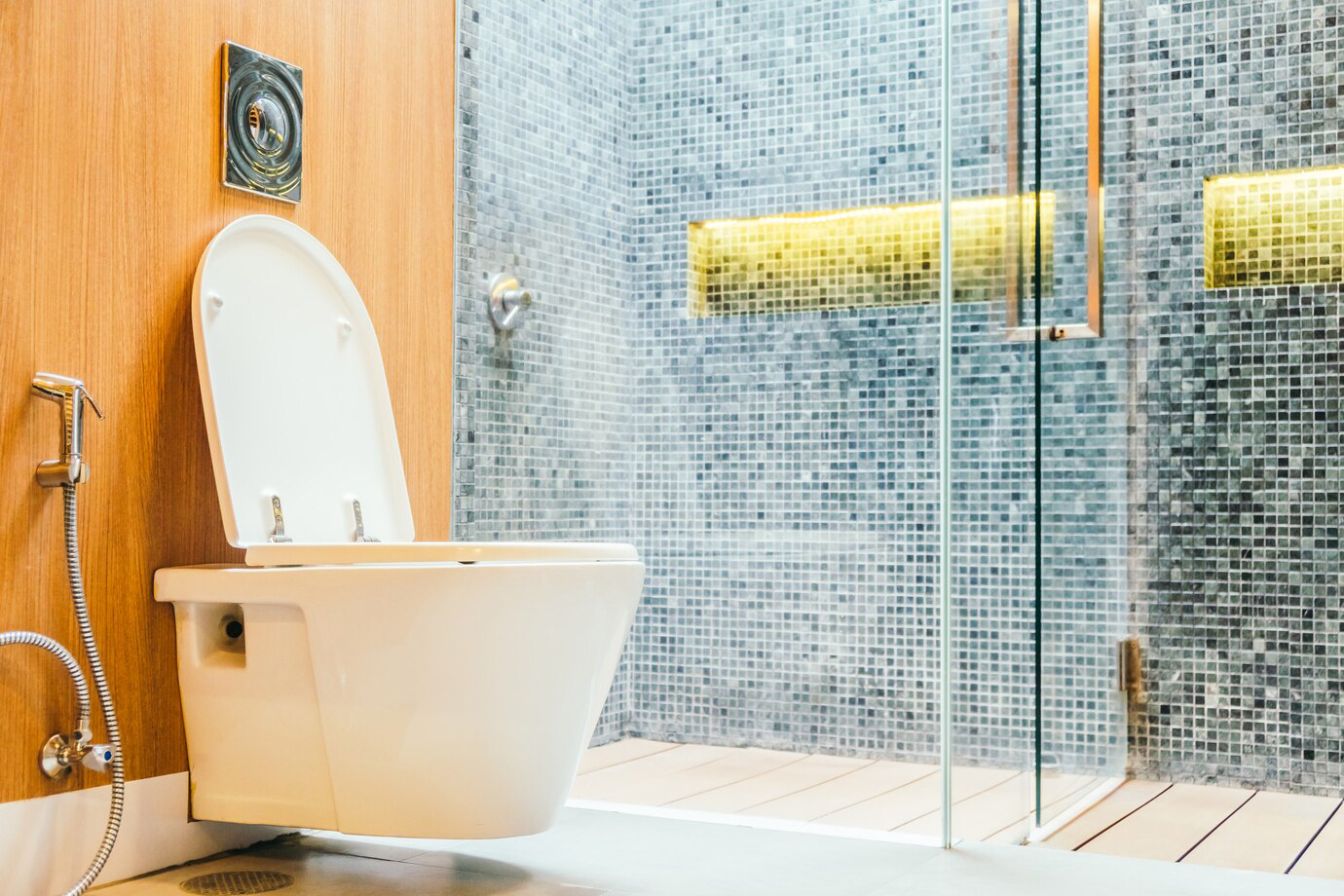
Toilets
Toilets are essential fixtures that come in a range of styles, including classic two-piece models, sleek one-piece designs, and wall-mounted units. Many also offer features like water-saving flush systems, built-in bidets, or taller, comfort-height seating for added ease.
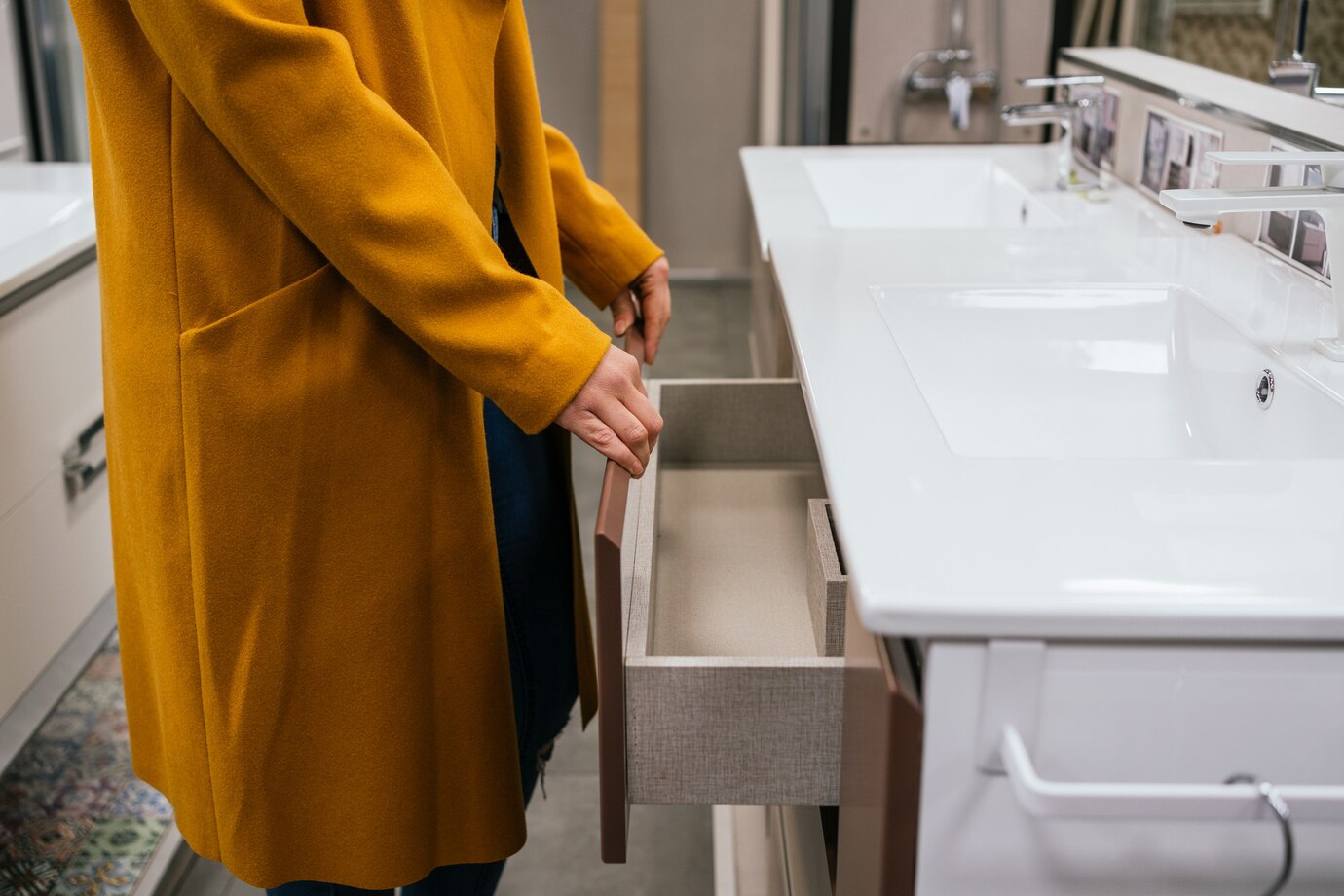
Cabinets and Vanities
Vanities and cabinets add both function and storage to your bathroom. A vanity typically pairs a sink with built-in storage underneath, while extra cabinets can help organize toiletries, towels, and cleaning essentials.
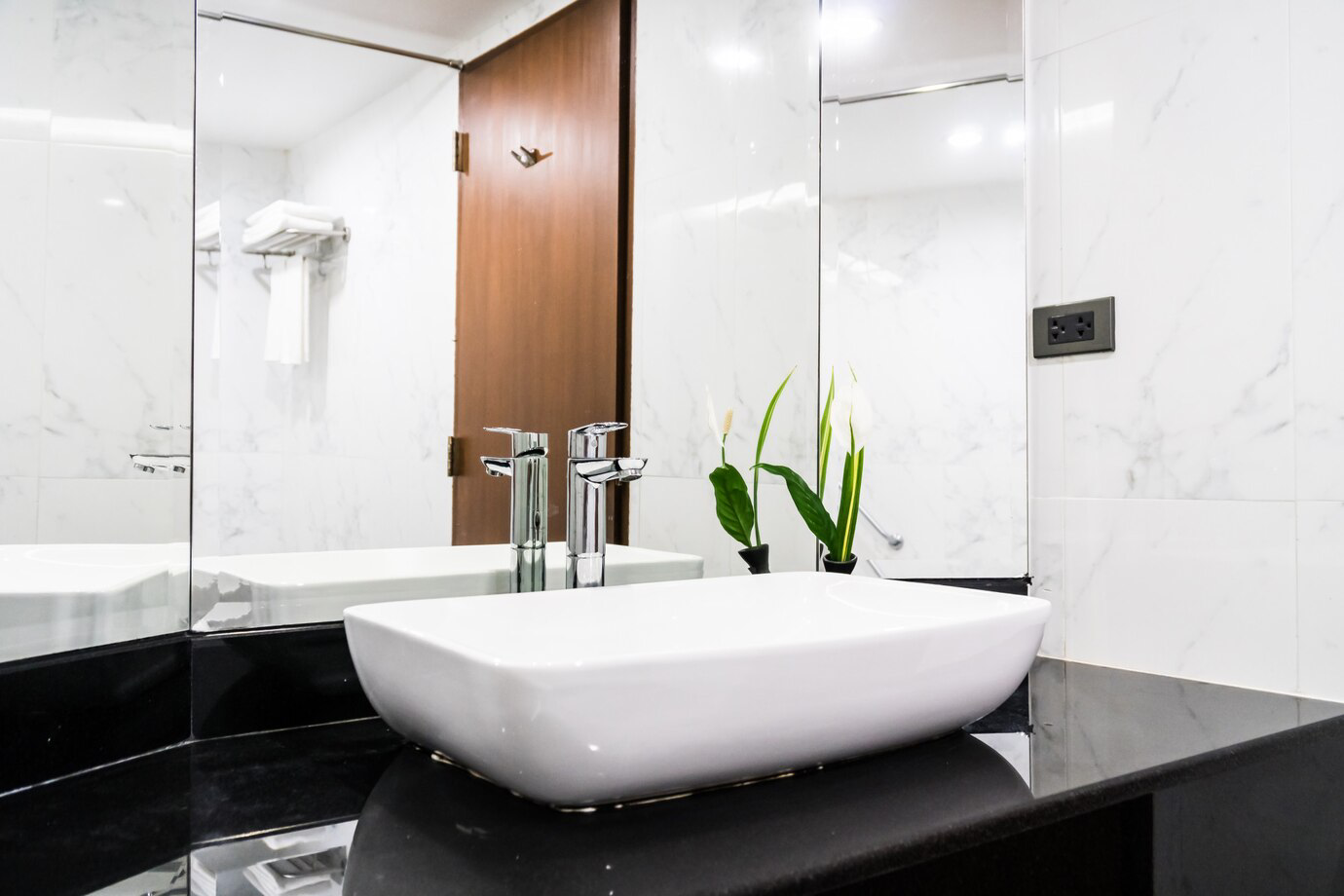
Sinks
Bathroom sinks are available in many styles, including undermount, vessel, pedestal, and wall-mounted designs. They're often combined with vanities to create a seamless, functional setup.
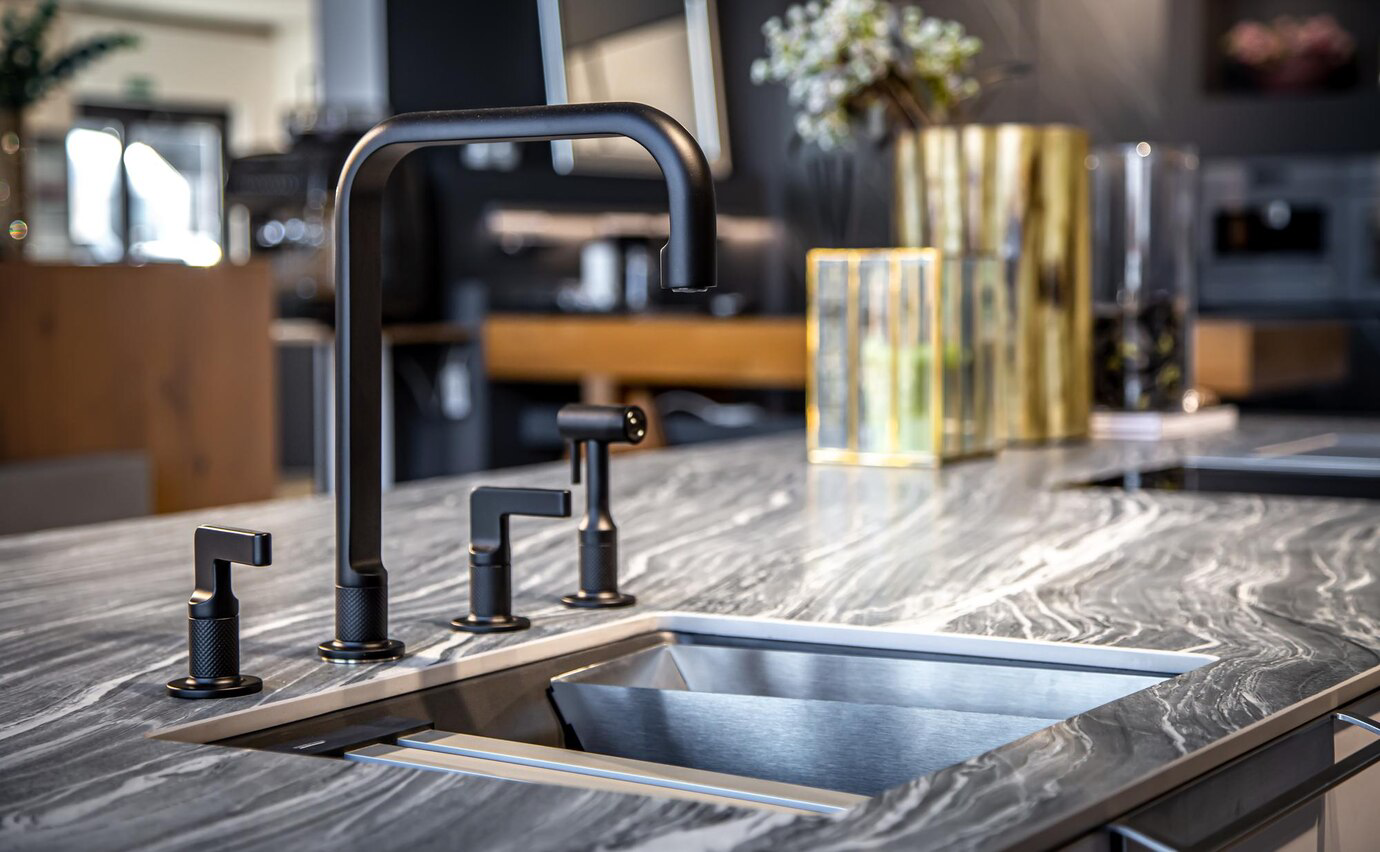
Countertops
Countertops offer a practical surface for everyday use and are typically made from sturdy materials like quartz, granite, marble, or laminate. Often installed with the vanity, they play a key role in both the look and function of the bathroom.
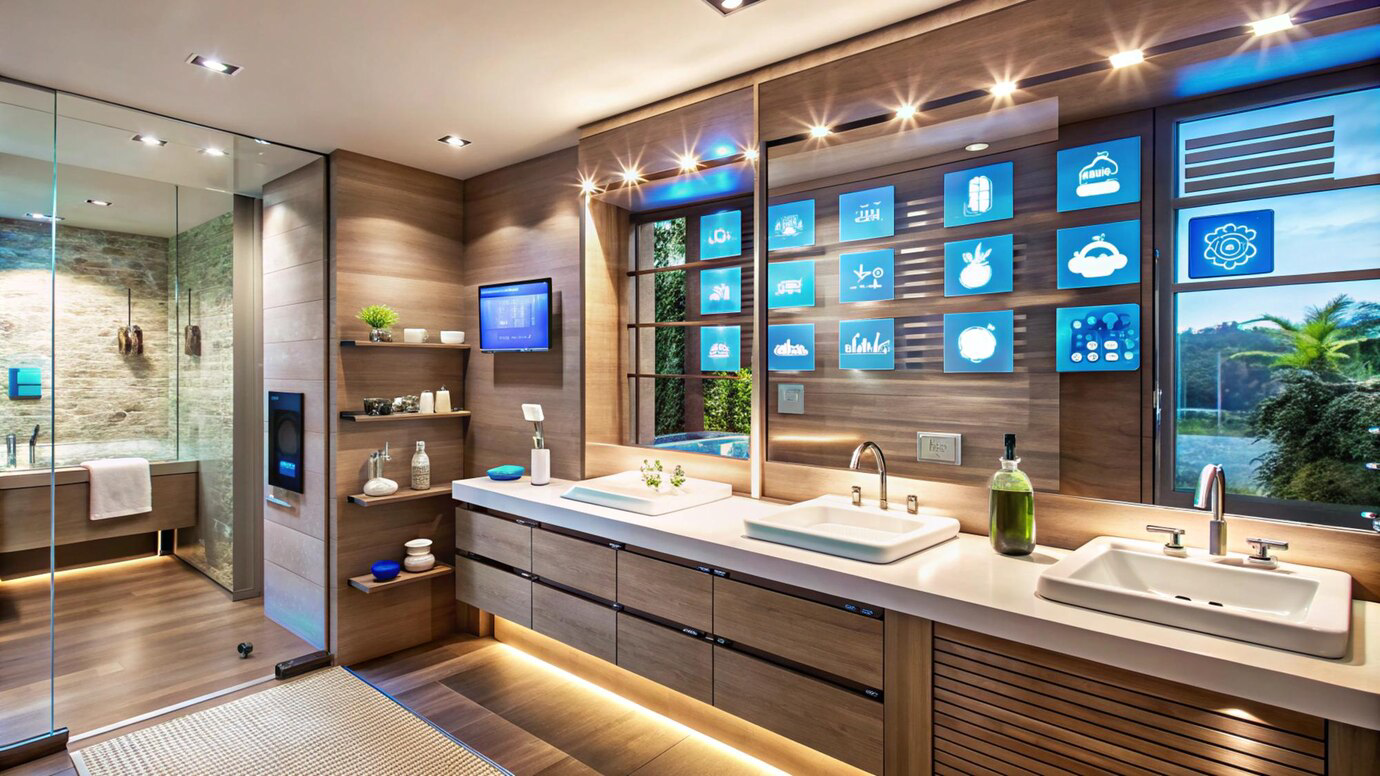
Lighting
Good lighting is essential for both practicality and atmosphere. It may include ceiling lights, vanity fixtures, or recessed options. Many modern setups feature LED bulbs, dimmer switches, and styles that enhance the overall design of the space.
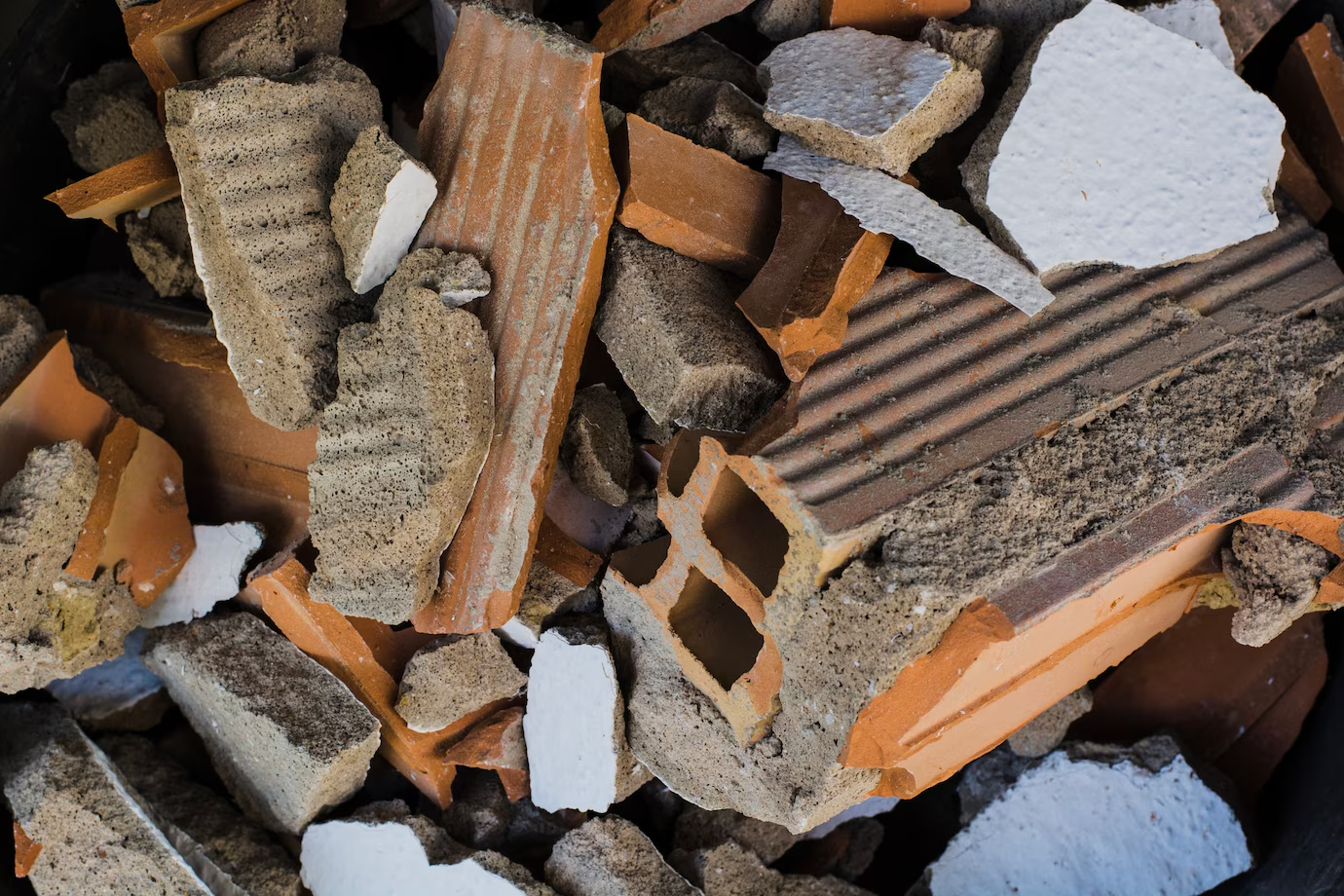
Demolition
Demolition is the process of tearing out old fixtures, tile, and sometimes walls to make way for the new design. It’s a necessary first step that also helps reveal any hidden structural problems that may need fixing.
How Much Does It Cost to Remodel a Bathroom?
Bathroom remodels can range widely in price—from around $3,000 for simple updates to over $30,000 for high-end, full-scale renovations. The final cost depends on the size of the space, the scope of the work, the materials you select, and local labor rates.

Frequently Asked Questions
What’s a Reasonable Budget for a Bathroom Remodel? +
What’s the Average Cost of Remodeling a Bathroom? +
What Typically Costs the Most in a Bathroom Renovation? +
Hiring a Bathroom Remodeling Contractor
Once you’ve set your budget and identified the key elements of your remodel, it’s time to start interviewing contractors and requesting quotes.
Be sure to review their online ratings, confirm they are licensed and insured, and look through their portfolio of completed projects.
It's a good idea to get three to four quotes to compare prices. Each quote should include a detailed breakdown of costs, such as materials, labor, permits, and any other charges. Pay attention to the scope of work, payment terms, and warranties. Also, review any exclusions—things that aren’t covered in the quote, like unexpected repairs or changes in the project scope. This will help you spot where different contractors may have varying prices.
Questions to Ask Potential Bathroom Remodel Contractors
- How many bathroom remodels have you completed in the past
- Do you have experience with projects of this size and complexity?
- Are you licensed and insured? Can you provide proof?
- Does your team have workers' compensation insurance?
- Can I view your portfolio of previous bathroom remodels?
- Do you have references from previous clients I can contact?
- Who will be performing the work? Do you subcontract any tasks?
- What steps will you take to protect my home during the renovation (e.g., dust control, debris management)?
- What potential challenges do you see in my project?
- Can you provide a detailed, itemized estimate?
- How do you handle unexpected costs or changes to the project scope?
- What is your estimated start date and project timeline?
- Will you take care of obtaining the necessary permits?
- Will you handle scheduling inspections, if needed?
- What kind of warranties do you offer on labor and materials?
- How do you address issues or repairs after the job is finished?
What’s the Next Step?
Now that you have a better understanding of what a bathroom remodel entails, we suggest measuring your bathroom, listing the changes that matter most to you, and researching the costs of those updates so you can set a realistic budget.
Whether your remodel is large or small, you’ll soon be enjoying a newly refreshed space!






